Books of the month: From Nick Hornby’s Just Like You to Laura Bates’s Men Who Hate Women
Martin Chilton reviews six of September’s releases for our monthly book column

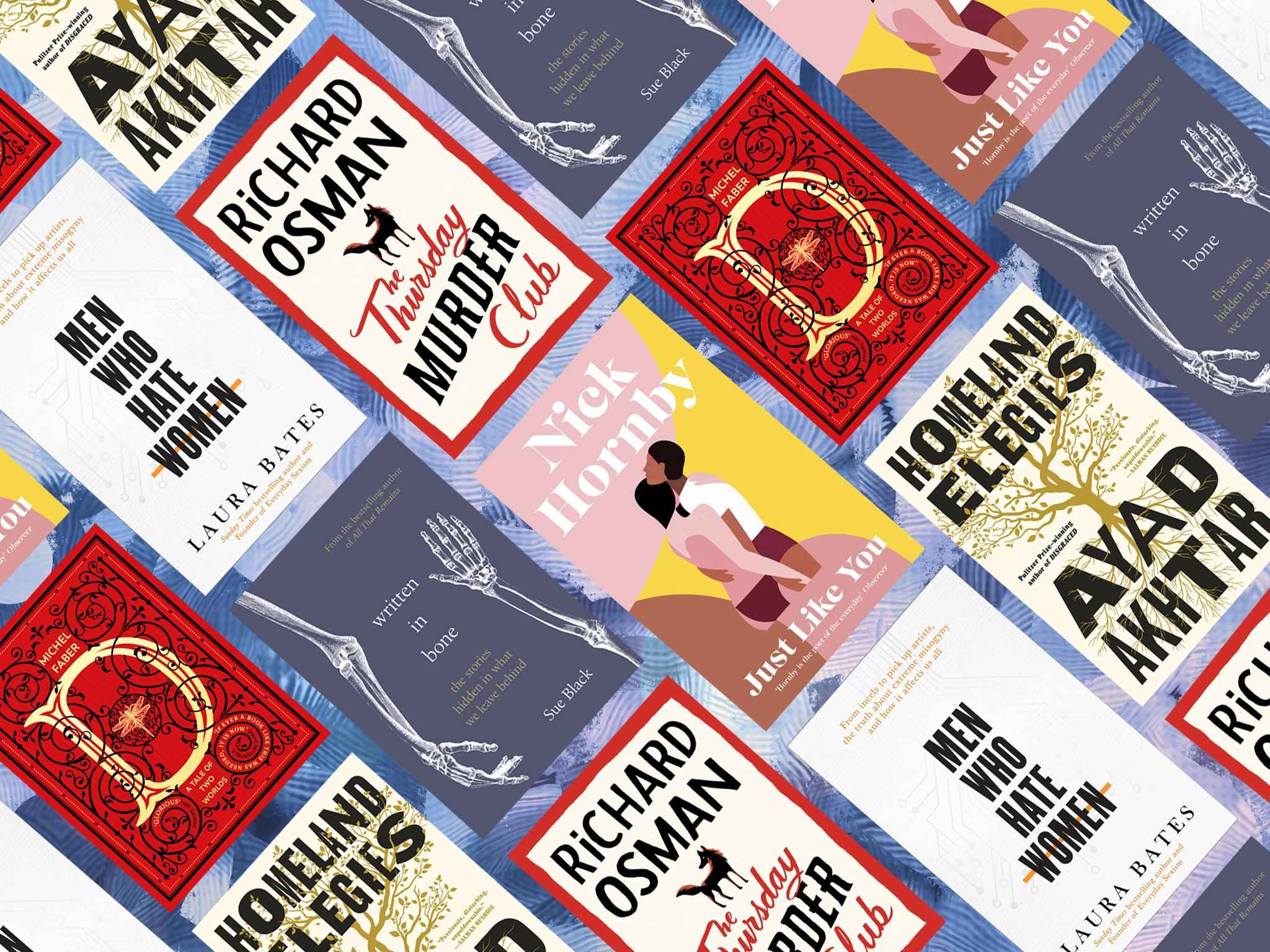
September brings a deluge of new books – 590 hardbacks on the first Thursday of the month alone – and a host of celebrity memoirs including Will Young’s To Be a Gay Man, Caitlin Moran’s More Than a Woman, Ant and Dec’s joint autobiography Once Upon a Tyne, Vinnie Jones’s Lost Without You and Martin Amis’s “novelised autobiography” Inside Story.
Second World War buffs will enjoy Robert Harris’s V2 (Cornerstone) and Helen Fry’s engrossing tale M19 (Yale University Press), which details the exploits of the secret organisation that rescued allied troops from behind Nazi lines. The gadgets they used – including playing cards that peeled back to reveal maps – are like something dreamt up by James Bond’s mad scientist Q.
According to Michael Wood’s dazzling and detailed The Story of China (Simon and Schuster), so many bodies were hurled into the waterways of Zhejiang during the 19th-century Taiping rebellion that the rivers were “choked with the dead and covered with a thick white film of ‘corpse wax’”. While Louise Hulland’s important investigative book Stolen Lives (Sandstone Press) looks at modern Britain, where an estimated 136,000 people are in some form of slavery.
Great new fiction this month includes Ruth Jones’s entertaining novel Us Three (Bantum Press), Rose Tremain‘s moving Islands of Mercy (Vintage) and Nydia Hetherington’s beguiling circus-based story A Girl Made of Air (Quercus). There are few tales more powerful this month than Louise O’Neill’s chilling After the Silence (Riverrun), which is about how a community hides the truth to protect a murderer.
Fans of Elena Ferrante’s My Brilliant Friend will love The Lying of Adults (Europa Editions, translated by Ann Goldstein). Ferrante’s captivating new novel, set in Naples, displays her usual gifts for gripping storytelling. A television adaptation is coming soon to Netflix.
Ian McGuire’s The Abstainer (Scribner), one of a number of books delayed from spring until September because of the pandemic, is a terrific, atmospheric historical novel. Set in 1867, it tells the story of constable James O’Connor’s battle to stop Fenian violence in Manchester. The narrative drive is superb and the novel has relevant things to say about why “fanatics” are motivated by the power of “dust and bones”.
Among the first-class thrillers this month is House of Correction by Nicci French (Simon and Schuster), while Steve Cavanagh continues his fine run of form with the clever, twisty Fifty Fifty (Orion), about two sisters on trial for murder who both accuse each other. I also recommend Hari Kunzru’s Red Pill (Simon and Schuster), a cracker with a mordant opening chapter about middle age.
Zoë Somerville’s The Night of the Flood (Head of Zeus) is “a literary thriller set in north Norfolk”. The unusual setting, around a North Sea flood in 1953, adds to the appeal of this excellent debut thriller about a murderous love triangle. Another fine debut is Pizza Girl by Jean Kyoung Frazier (HQ), which has sharp things to say about a dysfunctional pregnant teenager in Los Angeles. This is a neat outsider’s view of a status-obsessed world (“my thank-you card is nicer than your thank-you card”).
Sleep disturbances have been a feature of the pandemic, and sufferers will find much humorous food for thought in Sleepless by Anders Bortne (Sandstone Press, translated by Lucy Moffatt). “My efforts to relieve stress have left me more stressed than ever before,” writes Norwegian novelist Bortne.
Novels from Richard Osman, Nick Hornby, Ayad Akhtar and Michel Faber are reviewed in full below, along with non-fiction from Laura Bates and Sue Black.
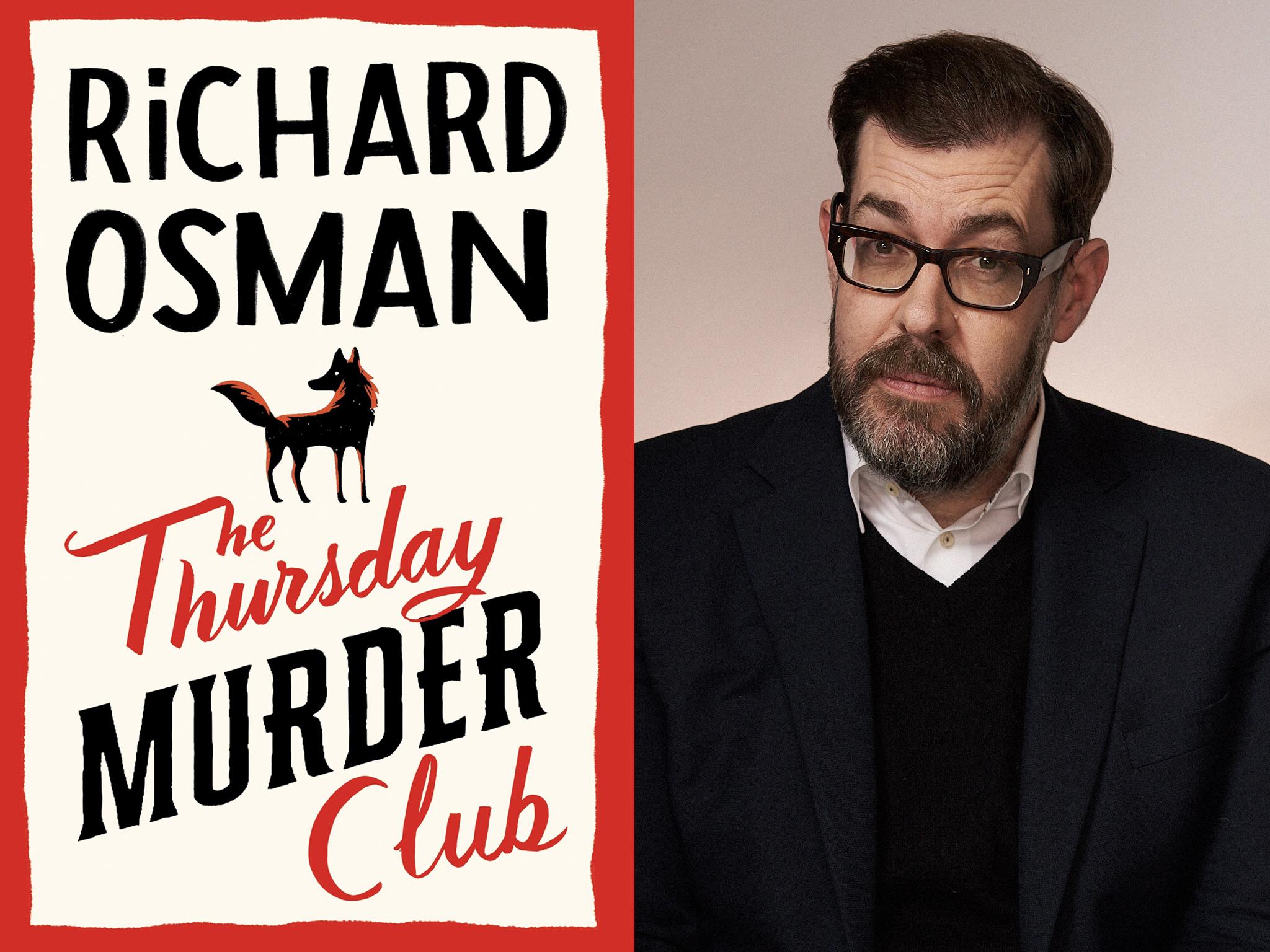
The Thursday Murder Club by Richard Osman ★★★★☆
“After a certain age, you can pretty much do whatever takes your fancy. No one can tell you off, except for your doctors and your children,” writes Richard Osman in his terrific debut novel. Osman’s crime thriller is about four OAPs who meet at their residential home to investigate crimes… as long as the meeting room isn’t booked by the Conversational French Group, of course.
The Thursday Morning Murder Club quartet bring useful skills from their past. Joyce was a nurse; Ibrahim a shrink; Elizabeth a secret agent; and Ron a bolshie trade union boss (his key strength is that he never believes a single word anyone tells him, least of all the police). Osman’s oldies are well-drawn and, as you might expect from the droll television presenter, there are plenty of witty asides, including quips about the problem of getting stab-proof vests on same-day delivery, or the detective Chris who takes the expression “plain clothes” too literally. Poor Chris is something of a human warning beacon for middle age, “treading water, getting fatter, laughing less”.
The crime-solving gang are as happy discussing mystery bludgeonings, poisonings, and unidentified skeletons as they are debating whether M&S lemon drizzle cake is over-sugared. When murders start happening on the doorstep of their Coopers Chase care home, however, the OAPs suddenly find themselves solving their first live case. When it comes to being amateur sleuths, they are about as amateur as Sherlock Holmes. Solving murders, it turns out, is also a good cure for old-age loneliness. No spoilers, because the plot races along and the twists and turns are good.
The Thursday Murder Club contains touching moments of reflection, especially in the occasional first-person diary entries from Joyce. “In life you have to learn to count the good days. You have to tuck them in your pocket and carry them around with you,” she reflects. Joyce also has an ingrained suspicion towards anyone called Ian. And who can blame her?
It’s easy to envisage a big or small screen adaptation coming soon (“round up Judi Dench, Bill Nighy and the usual suspects,” the casting agents cry)… but, in the meantime, savour Osman’s thoroughly enjoyable novel.
‘The Thursday Murder Club’ by Richard Osman is published by Viking, £14.99
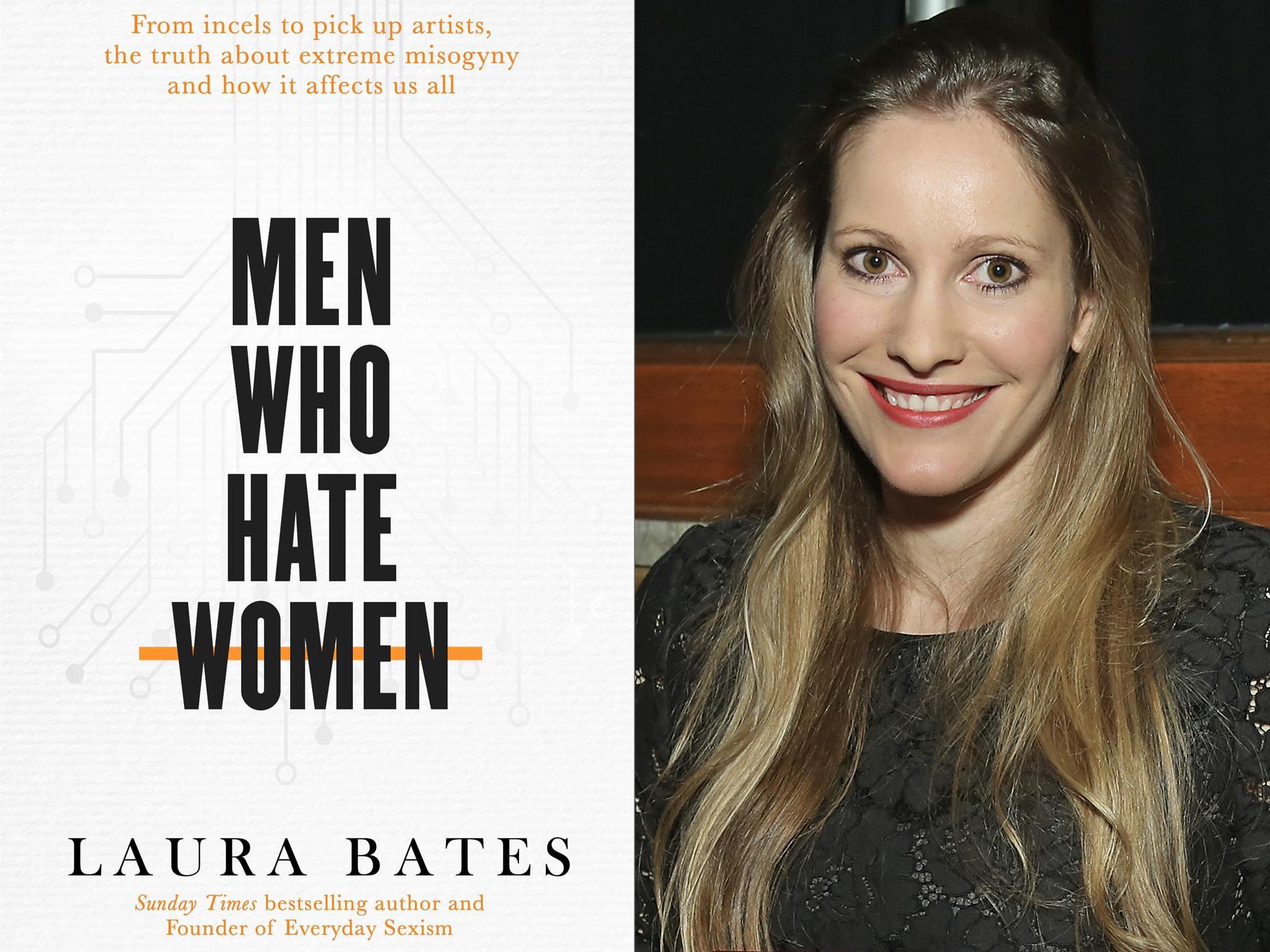
Men Who Hate Women by Laura Bates ★★★★☆
The “dehumanisation of young women online” is a pressing problem. Laura Bates spent a year undercover wading through the most cultish, vehemently misogynistic parts of the internet.
Using acronyms is a deliberate tactic on the so-called “manosphere” – women are referred to as “foids”, short for “female humanoid”, for example – an online community that sucks in impressionable young men who are searching for answers about relationships. They are susceptible to manipulative messaging and language is a powerful tool for denigrating women.
Bates attended a meeting of disaffected men in a London pub – one wore a ‘MALE LIVES MATTER’ T-shirt – and she was struck by the way that their views have been legitimised by president Donald Trump’s openly misogynistic behaviour. “It was the first tangible proof that the words and actions of Trump have had a direct evangelising impact on the movements I was investigating,” writes Bates. Our own prime minister doesn’t come out well in the book, either. Bates quotes Boris Johnson lamenting the “fickleness” of women and details the influence that Trump’s disgraced former chief strategist Steve Bannon had on Johnson.
Over the past two years, Bates noticed during school visits that the responses of young boys were changing. “They were angry, resistant to the very idea of a conversation about sexism,” Bates comments. “Men themselves were the real victims, they’d tell me, in a society in which political correctness has gone mad.”
Men Who Hate Women opens a fascinating window on the grim world of “incels” (a portmanteau of “involuntary celibates”) and pick-up artists. Although aspects of incel groups are risible – the obsession with the size of wrist circumference, the jaw-enhancing “mewing” techniques, and the penis-stretching exercises – they are deeply worrying. Bates details, in case after depressing case, how these websites incite real-life violence, and how they flourish with impunity.
Bates has constructed a relentless account of why misogyny and violence against women are so widespread and normalised in the UK today. She cites the 2016 YouGov poll which revealed that two-thirds of young women have experienced workplace sexual harassment. She also adds context, including the consequences of spiralling victim-blaming in the news coverage of domestic violence and the damaging effects of austerity cuts to youth services for young, troubled men.
Men Who Hate Women is a disturbing, powerful read and you can only admire the courage of Bates, the founder of The Everyday Sexism Project. She has suffered more than her share of vile trolling and threats. “Writing this book is scary, but it is also an act of resistance,” she says.
‘Men Who Hate Women – From Incels to Pickup Artists: The Truth about Extreme Misogyny and How it Affects Us All’ by Laura Bates is published by Simon and Schuster, £16.99
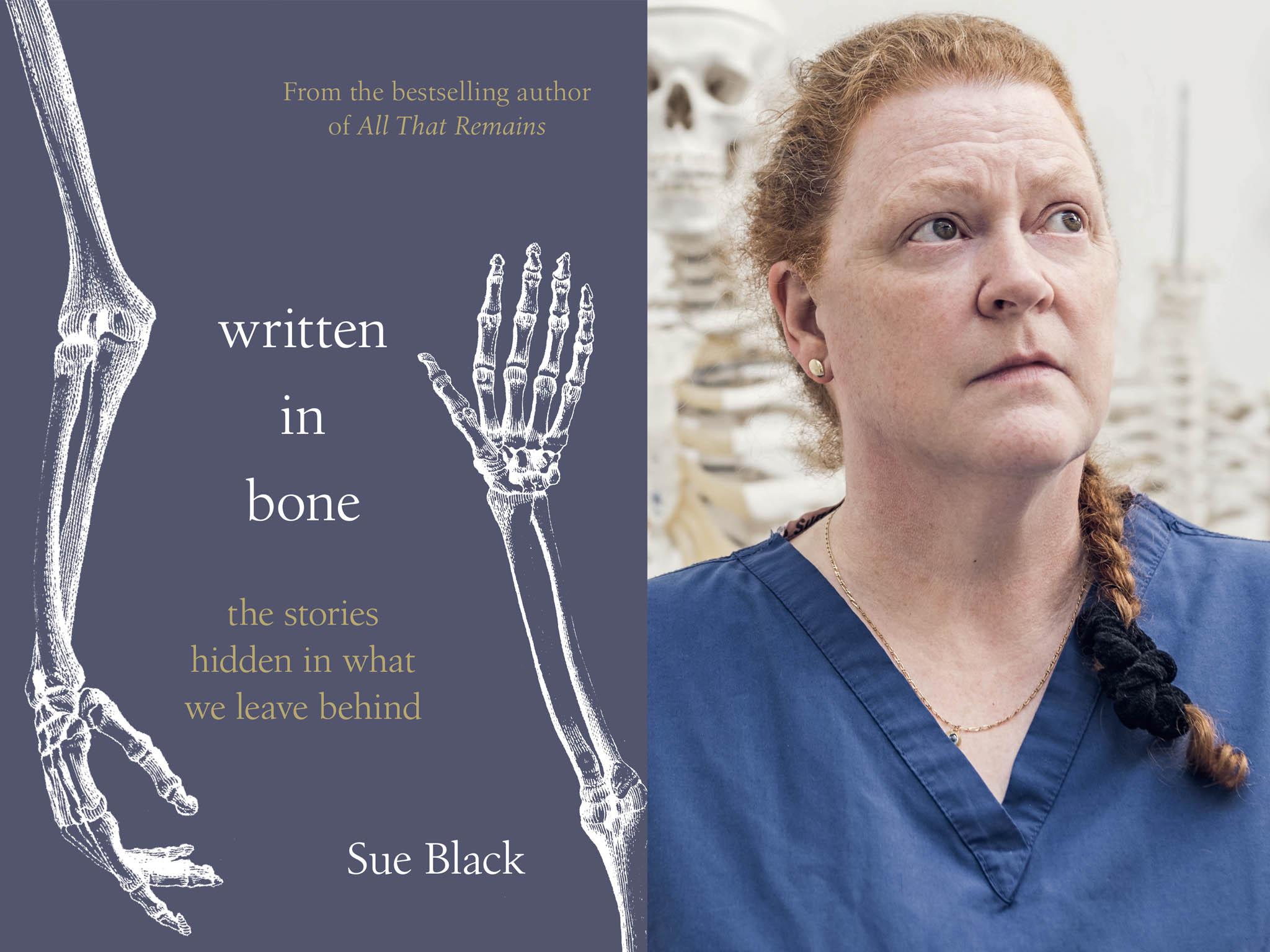
Written in Bone by Sue Black ★★★★★
“I have often commented to crime writers, if they wrote some of the stuff that we come across in real life, their plots would be dismissed as ridiculously implausible,” writes Sue Black in her stunning new book Written in Bones.
Crime writers can sit in comfy chairs and dream up grisly plots. Black, one of the world’s leading anatomists and forensic anthropologists, often has to slosh about in the gloop of the yellow-brown slimy mush of a decomposed body to find the vital lumps of bone that will help a police investigation.
Bones carry echoes of our experiences, habits, and activities and Black compares solving the mystery left by the fragments of bones to putting together a picture from a single piece of a unique giant jigsaw puzzle. Written in Bones, which is divided into sections on the head, the body, and the limbs, is full of gripping case studies, such as the “Head in a Shed” case. Some of the accounts of crimes are nauseatingly violent (poor Colin’s eye) or about sickening behaviour. But to get to the truth of what happens to child abuse victims, for example, you need someone as painstaking and shrewd as Black. “Assumption is the mother of all mistakes,” she notes.
The book is full of dry humour – there is a grimly compelling story about the problems of transporting decomposing heads on commercial flights – and eye-opening anecdotes. Black refers to the variety of “foreign bodies” that turn up in pelvic regions. “In one case we even retrieved a toothbrush from the anal canal”, writes Black. That’s surely taking a brushing regime too far.
Written in Bone is a window into a world few of us get to experience. She details her strange politically sensitive battle with American agents in Grenada and guides us through experiences too horrendous to imagine. After the 2002 Bali bombings, Black recalls that about half of the bloated, decomposing bodies were incorrectly identified by their families.
Black’s dispassionate judgements on criminals, human nature and the sheer fragility of existence are balanced and humane. Admiration for the author only increases after reading her candid revelation about the horrific sexual assault she herself suffered as a child.
Little seems to faze Black, although she does admit to being bemused and appalled by the growing trade in grisly human trinkets. It seems that necklaces made from real human fingers are becoming quite popular.
‘Written in Bone: Hidden Stories in What We Leave Behind’ by Sue Black is published by Doubleday, £18.99
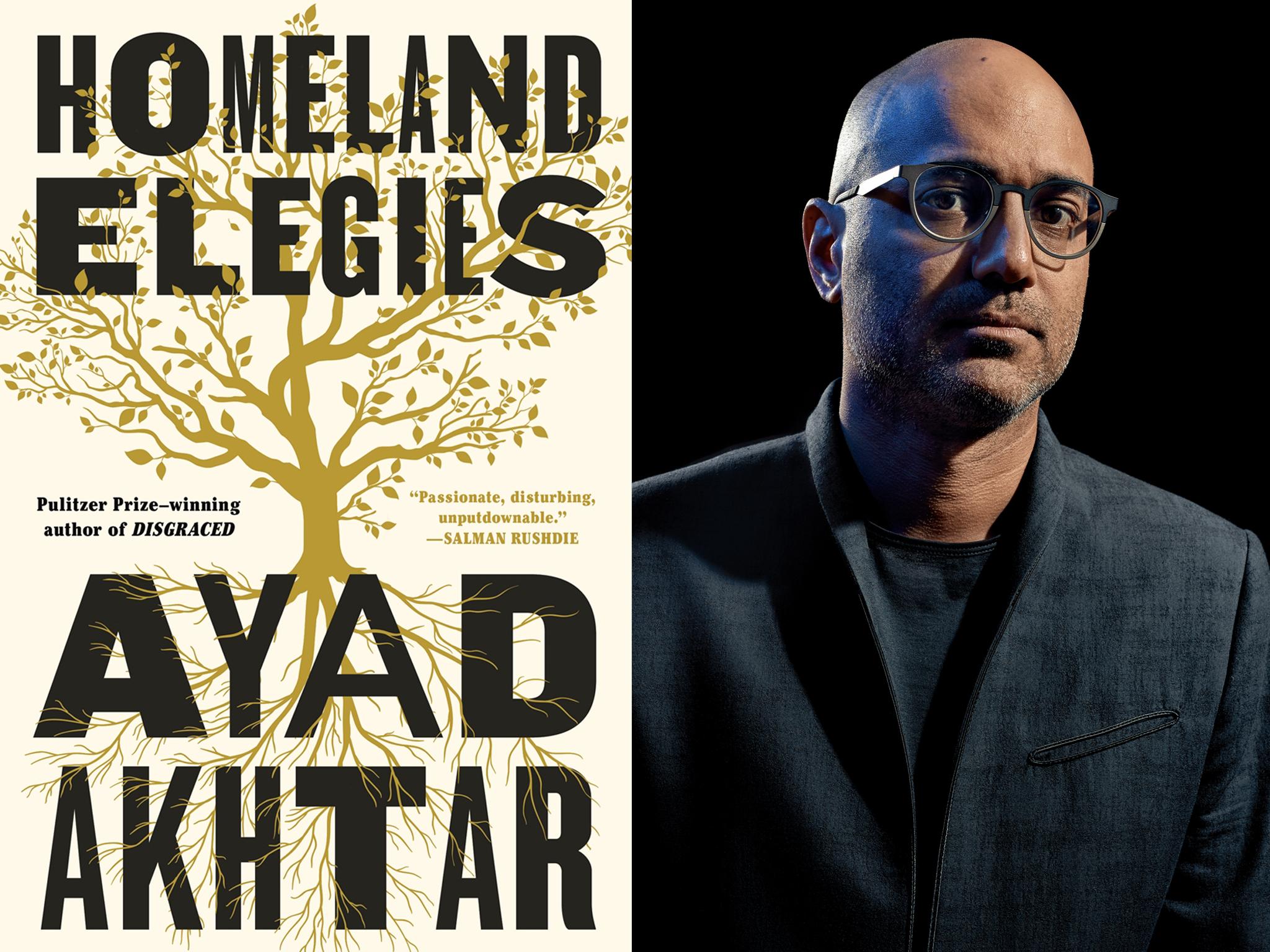
Homeland Elegies by Ayad Akhtar ★★★★★
It’s hard to pin an exact label on Homeland Elegies. Ayad Akhtar’s book is part-novel, part-fictional memoir, in which the winner of the Pulitzer Prize for Drama explores contemporary America, dissecting its greed, politics, sex and religious divisions in sparkling, thought-provoking prose.
The book is full of memorable characters, especially the maudlin mother of the American-born narrator, a woman who misses her native Pakistan. She is married to a money-obsessed immigrant, who was once Trump’s heart doctor (both “binged on debt in the 1980s”). The father’s love of money is at the core of the story.
There is also an intriguing Muslim hedge fund manager called Riaz, who introduces the narrator to the world of the new aristocracy. After spending time in Italy – where the author began writing the book – the narrator discusses the super-rich and “their obsession with faience and face-lifts, their drunk, lazy tongues, the putrid odours of their scented ageing, the hors d’oeuvres (and cocktail waitresses) chased across the room, the private jets, the summer houses, the winter homes, and absolutely everywhere – or so it seemed – the yammering about works of art they neither understood nor liked but on which they regularly spent more money than I expected to make in my lifetime”.
The book opens on the anniversary of Trump’s first year in office, the former television star’s political rise seen as an inevitable consequence of an era where the “terrifying lust for unreality has engulfed us all”. Few seem to care that Trump is clearly a man of “wilful mendacity and vulgarity”. But then again, Akhtar sees in America “a nation in thrall to our own stupidity”. Akhtar’s book constantly provokes, encouraging you to think in different ways about the people at the top. I read the description of Barack Obama as a man “who gloried in his pop-culture celebrity” on the same day his Instagram-released official summer playlist was grabbing headlines.
Homeland Elegies is also a discourse on alienation from the culture of a new land to which your parents emigrated. The terror attack of 9/11 is described as a day that “changed Muslim lives in America forever” and the book deals with some of the fallout, including tense, scary anecdotes about what it’s like to face racism.
In the eight chapters, bookended by an overture and a coda, Akhtar discusses the American denial of ageing and death, the “narcotic dependence” on phones, the Isis death cult, Pottersville from the movie It’s a Wonderful Life, the hatred between rural areas and cities in America and corporate medical corruption. He also passes on a technique for recalling dreams that, if you are anything like me, you will certainly try out.
The extensive use of the author’s own life – and the deliberate blurring of the line between fiction and autobiography – raises questions. Was he really a “pig with women” during a period of success? Did Trump really introduce the narrator’s father to the world of high-class prostitutes? The hard streaks of honesty are just part of the appeal of a fascinating book, bursting with “turns of phrases as sharp as a German paring knife”.
‘Homeland Elegies’ by Ayad Akhtar is published by Tinder Press on 9 September, £18.99
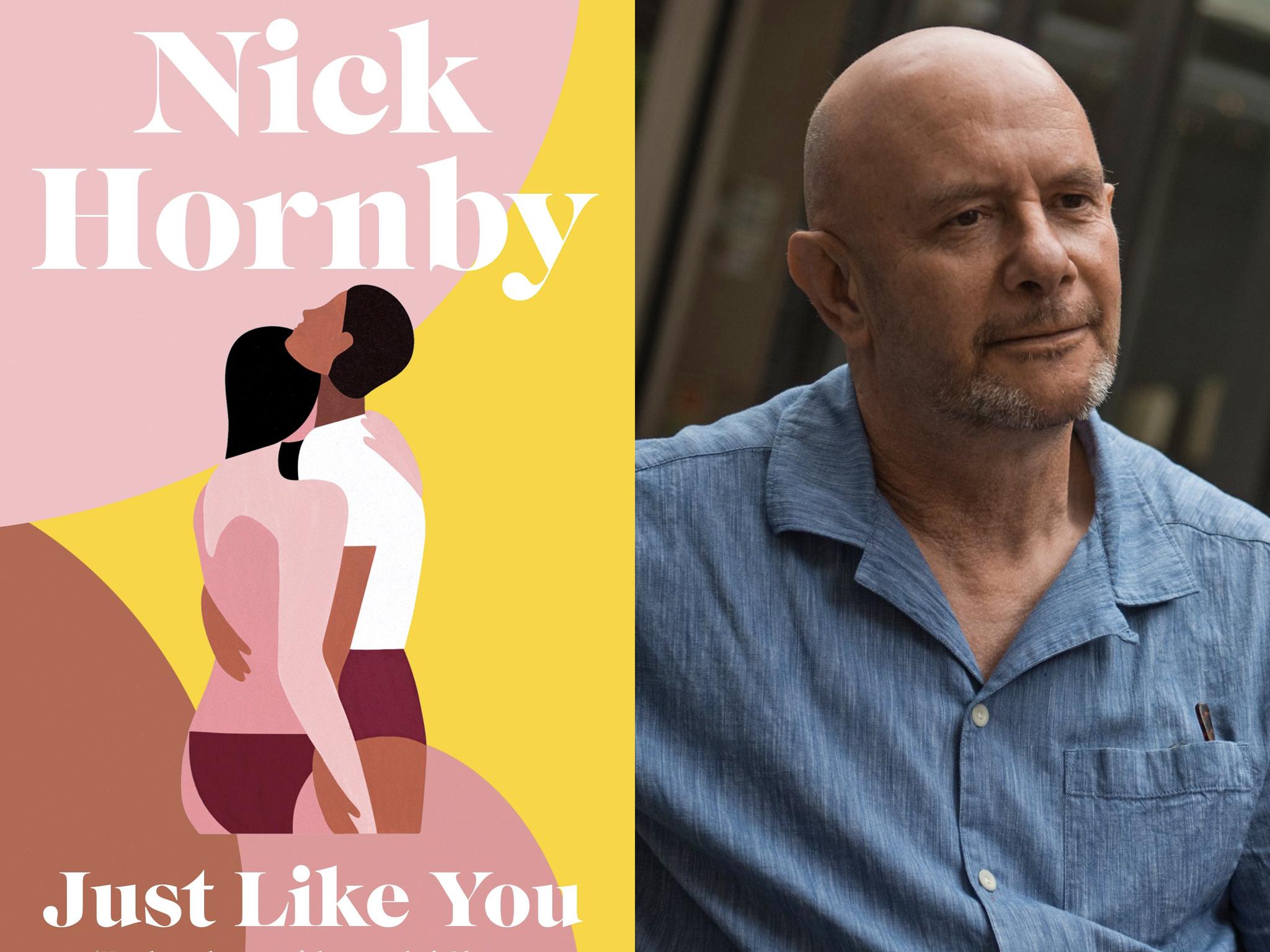
Just Like You by Nick Hornby ★★★☆☆
Nick Hornby has won a legion of fans with wry novels such as High Fidelity and About a Boy, and his latest, Just Like You, is about the romantic challenges of connecting with another person, especially when it is seemingly against all the odds.
Lucy, a white, middle-aged teacher who has split from her alcoholic husband, falls for Joseph, a part-time butcher, football coach, leisure centre worker, and aspiring DJ. He is black, working-class and, at 22, some 20 years her junior.
This is a distinctly north London novel, down to the references to Kentish Town and Chalk Farm restaurants, the characters and the dinner party Brexit debates (it is mainly set during the 2016 vote). Hornby’s portrait of the Islington elite is far from flattering. “Everyone I know is miserable,” says the vapid Sophie, one of the bored, frustrated women (with their “four-by-fours, their private schools and their new breasts”) who appear in the novel.
Lucy is head of English at a local secondary school, although in truth she seems far less exhausted than most real teachers I know by the end of a school year. The most touching moments are when she admits to painful self-doubt about whether she is just a “rapacious and deluded older woman”, one who has no business messing around with a man who sometimes has more in common with her pre-teen video game-obsessed sons Dylan and Al.
As you would expect from Arsenal fan Hornby, the man who wrote Fever Pitch, there are lots of football references and sly sporting jokes, including digs at horse racing and motor racing. In the butcher’s shop, Joseph takes against an arrogant customer called David, and his dog Senna. “Joseph guessed that he’d been named after Ayrton Senna, because this guy was just the sort of arsehole who liked Formula One.”
The novel explores division and racism and has its share of sharp observations that help illuminate what it means to fall headlong in love with someone who is nothing like you at all. It may simply be a failing on my part that, for all the assured touch of the author, Just Like You never truly ignited any passion.
‘Just Like You’ by Nick Hornby is published by Viking on 17 September, £16.99
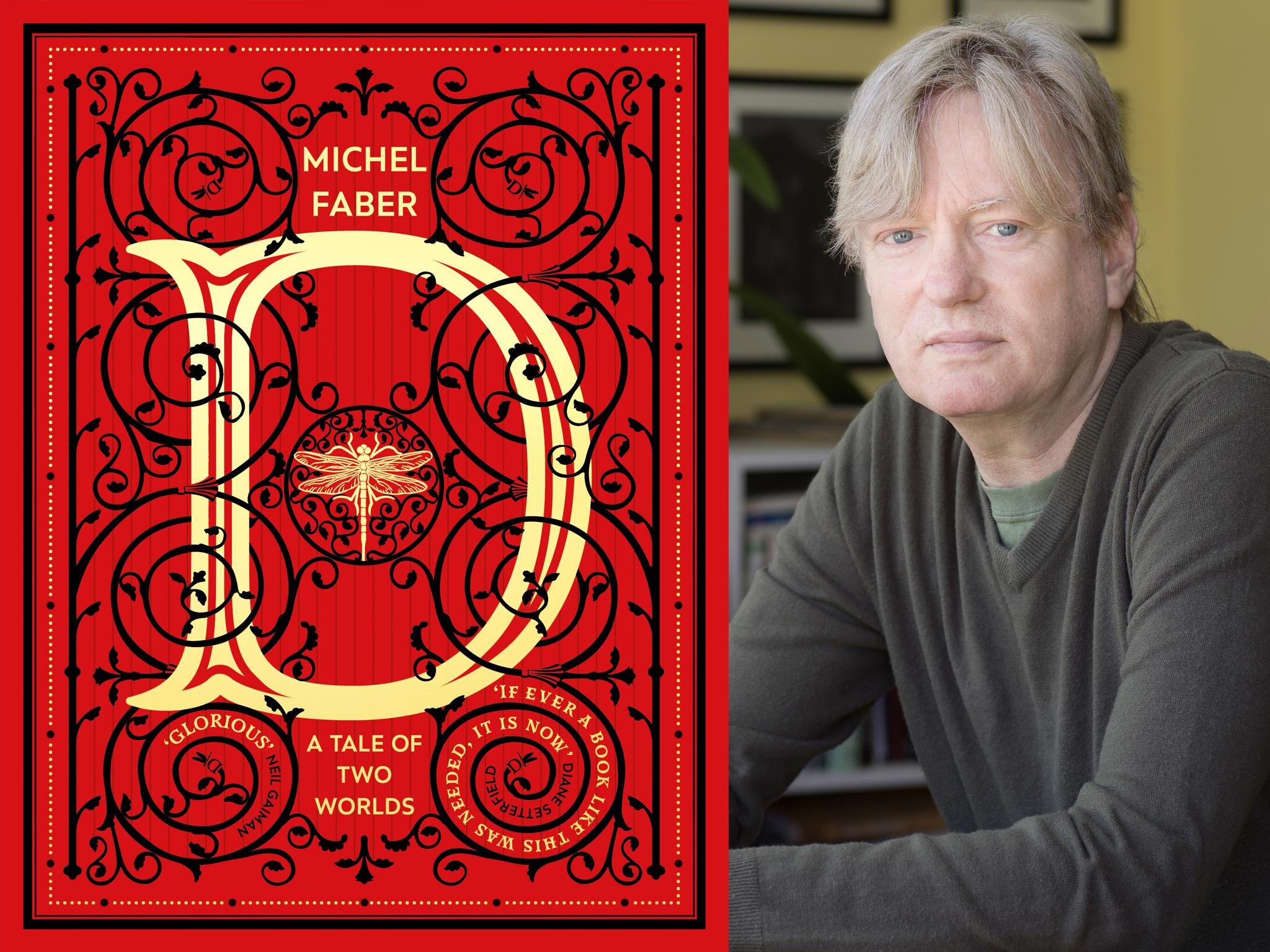
D (A Tale of Two Worlds) by Michel Faber ★★★★☆
Dhikilo is from Somaliland, the neighbouring country of Somalia, one currently unrecognised by any other nation. Dhikilo lost her mother and father and ended up in a shabby English seaside town called Cawber-on-Sands, adopted by a caring old couple. She’s a cheerful girl, who loves cooking and language. She is enchanted by her homeland word “sanansaxo”, which means the smell and coolness carried on the wind from a place where it’s raining to a place where it isn’t.
Dhikilo, a girl who likes to “ambulate”, seems an unlikely person to save the world. But when the letter “D” totally disappears, she is the only person interested in solving the mystery of why everything from dogs to doughnuts are suddenly vanishing. She is “a child of singular abilities”, and the wonderful heroine of this fable for adults.
The first part of Michel Faber’s novel is set in our world; the second, longer, section takes place in the wintery land of Liminus, a world enslaved by the repulsive Gamp. Faber’s dazzling fantasy acknowledges debts to CS Lewis’s Narnia and James Thurber’s The Wonderful O.
D (A Tale of Two Worlds) is also infused with the spirit of Charles Dickens. In Liminus, Dhikilo has to confront Magwitchers, the Bleak House Hotel, guillotines, ectoplasmic helpers, human-eating Quilps and a Mr Pumblechook. Amid all the fantasy, Faber makes subtle points about tolerance towards migrants and the reasons why people rebel against rulers. Dhikilo’s mentor, Professor Dodderfield, calls a revolution “an explosion of fed-upness”.
If you are wondering why the letter “D” matters so much, then just imagine being in a world run by some of our present-day political leaders and being deprived of the words dishonest, dodgy, deplorable and deceivers.
‘D (A Tale of Two Worlds)’ by Michel Faber is published by Doubleday on 17 September, £18.99
Join our commenting forum
Join thought-provoking conversations, follow other Independent readers and see their replies
Comments